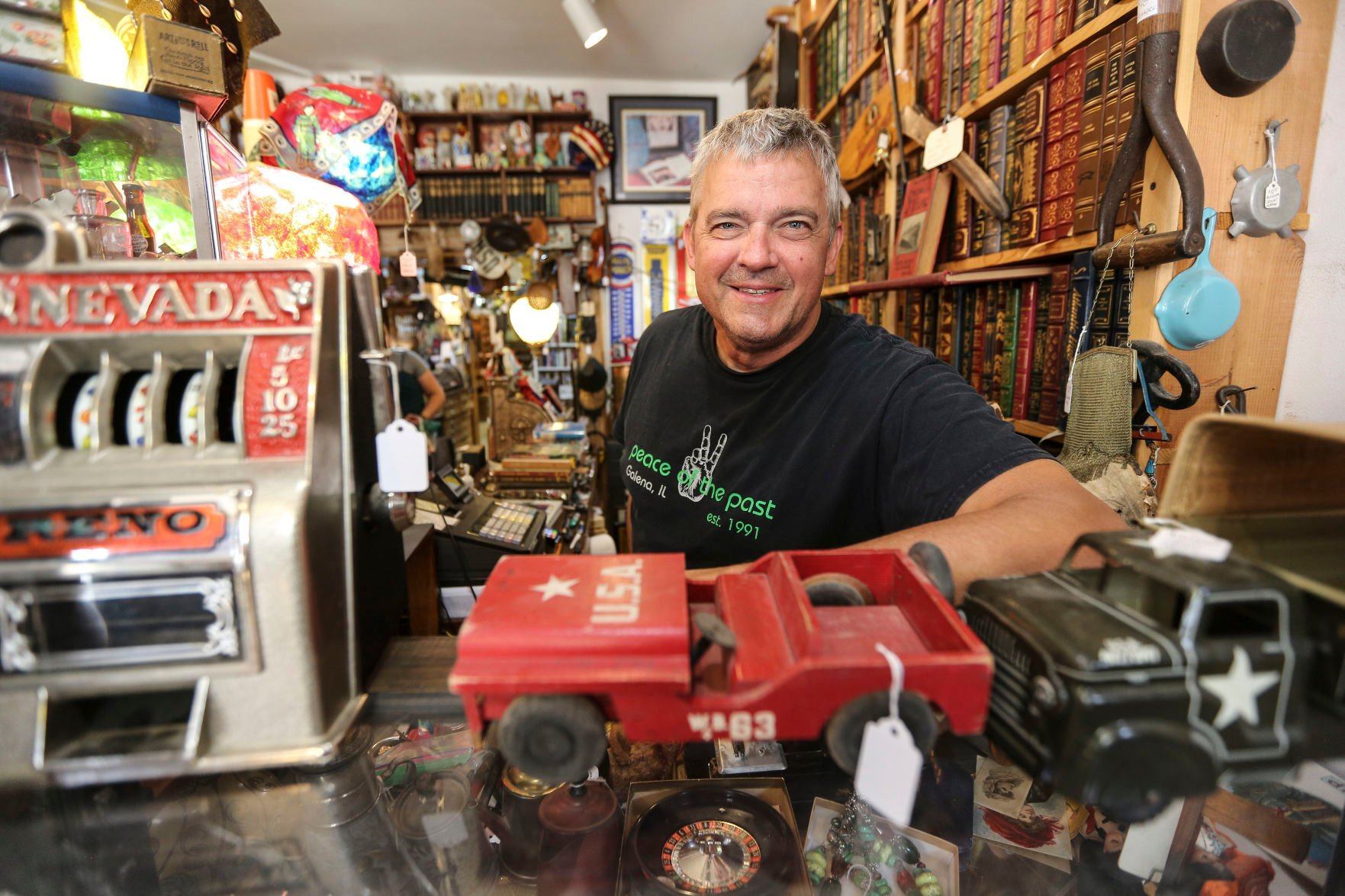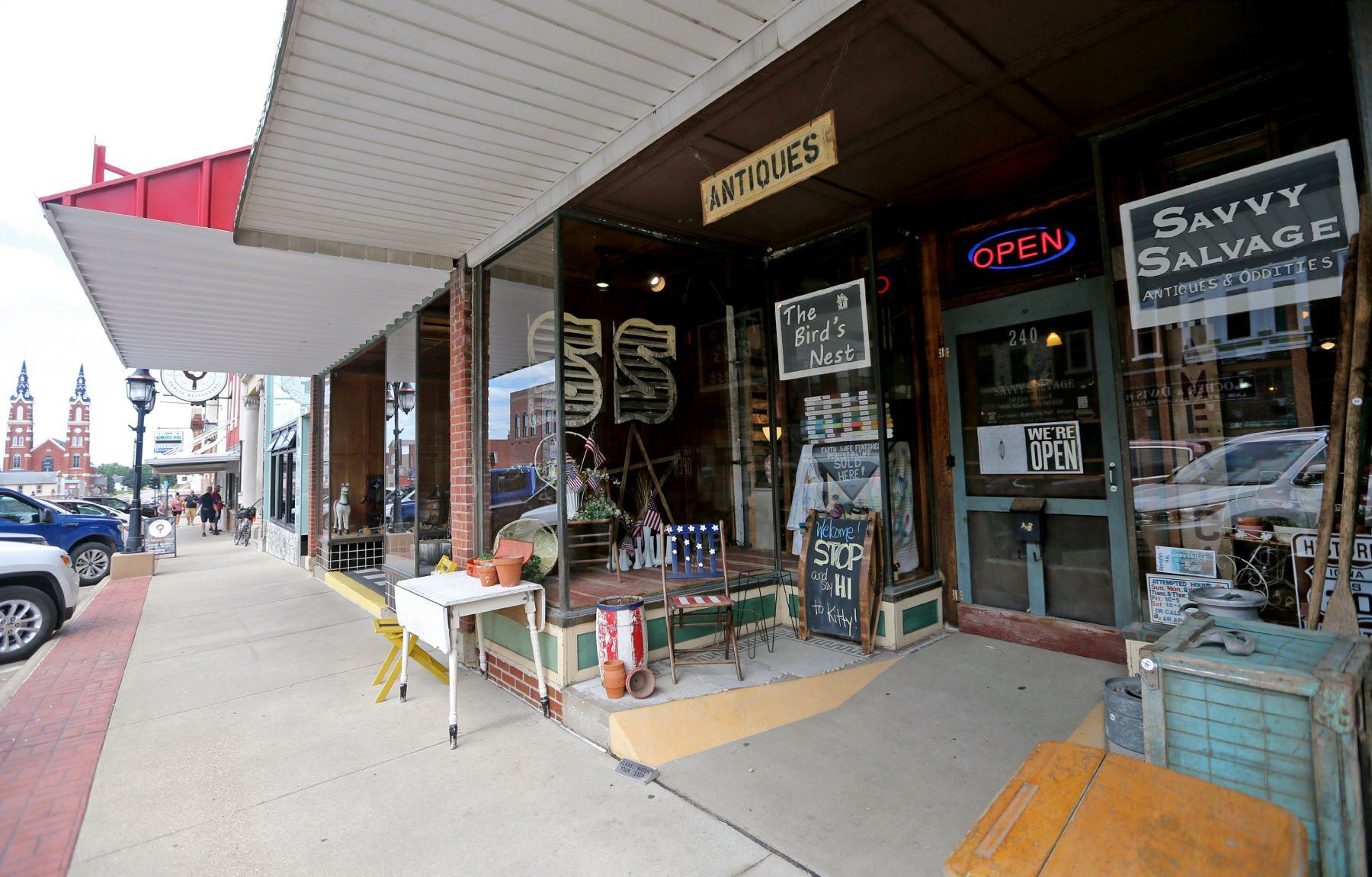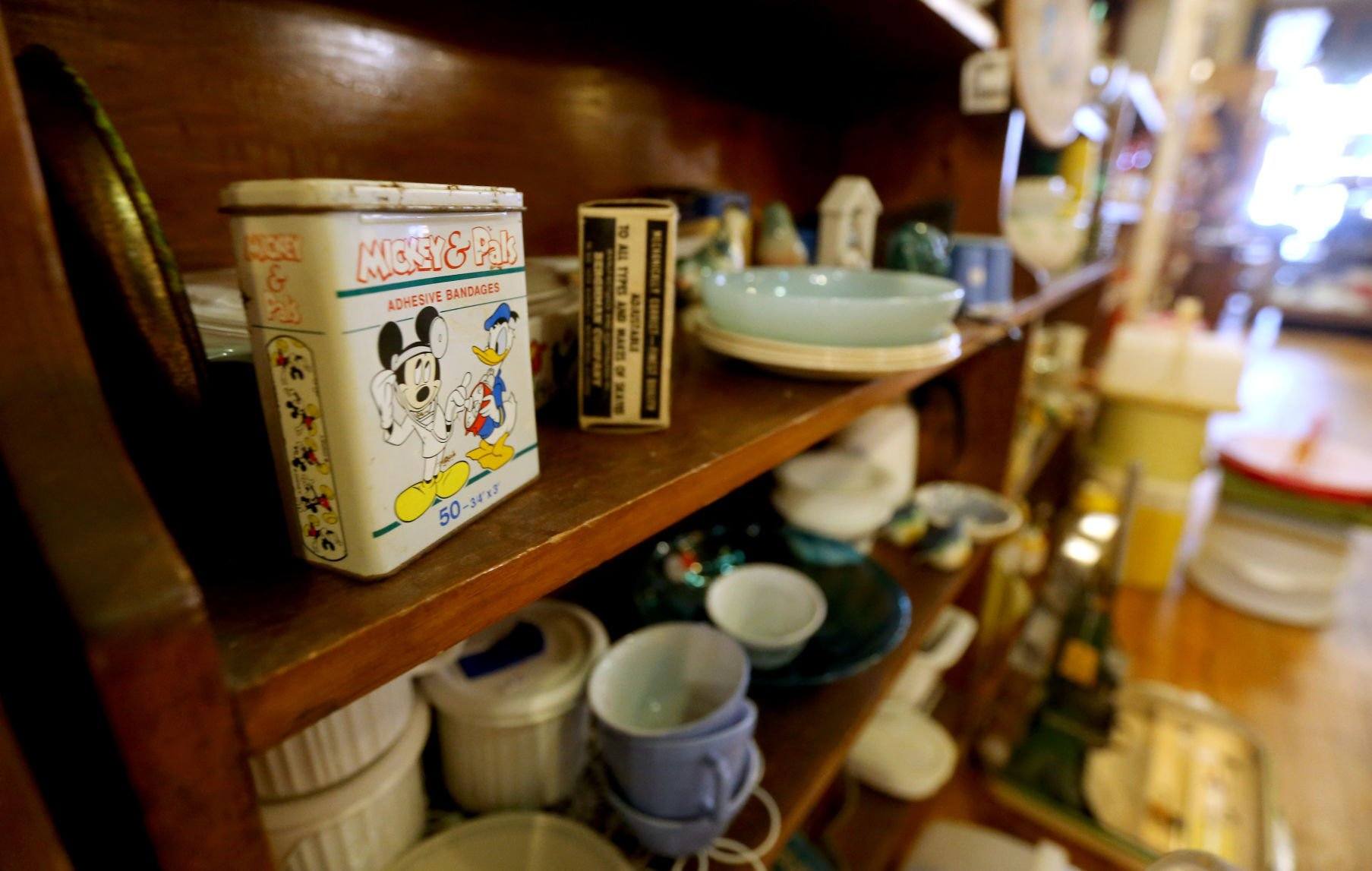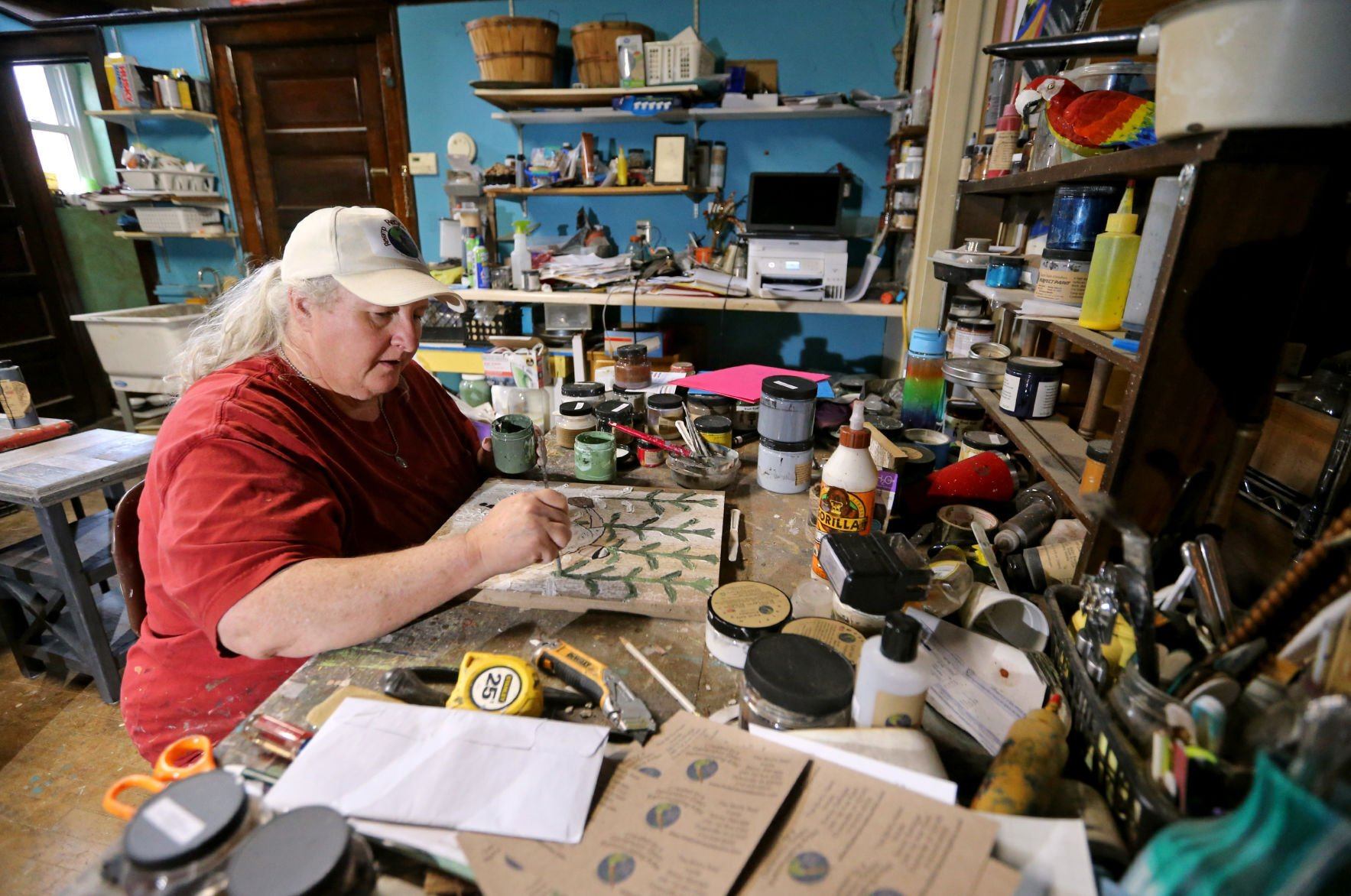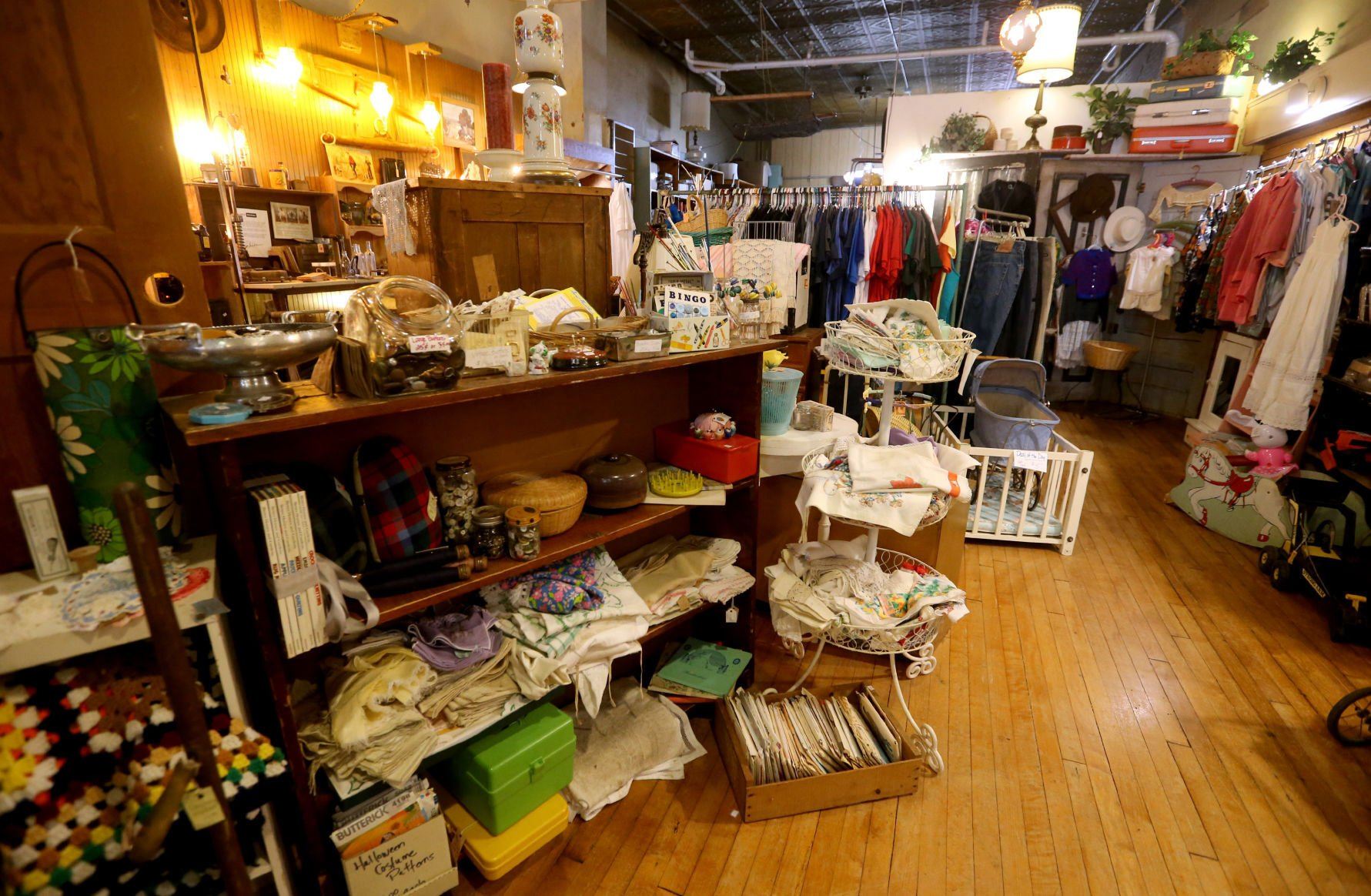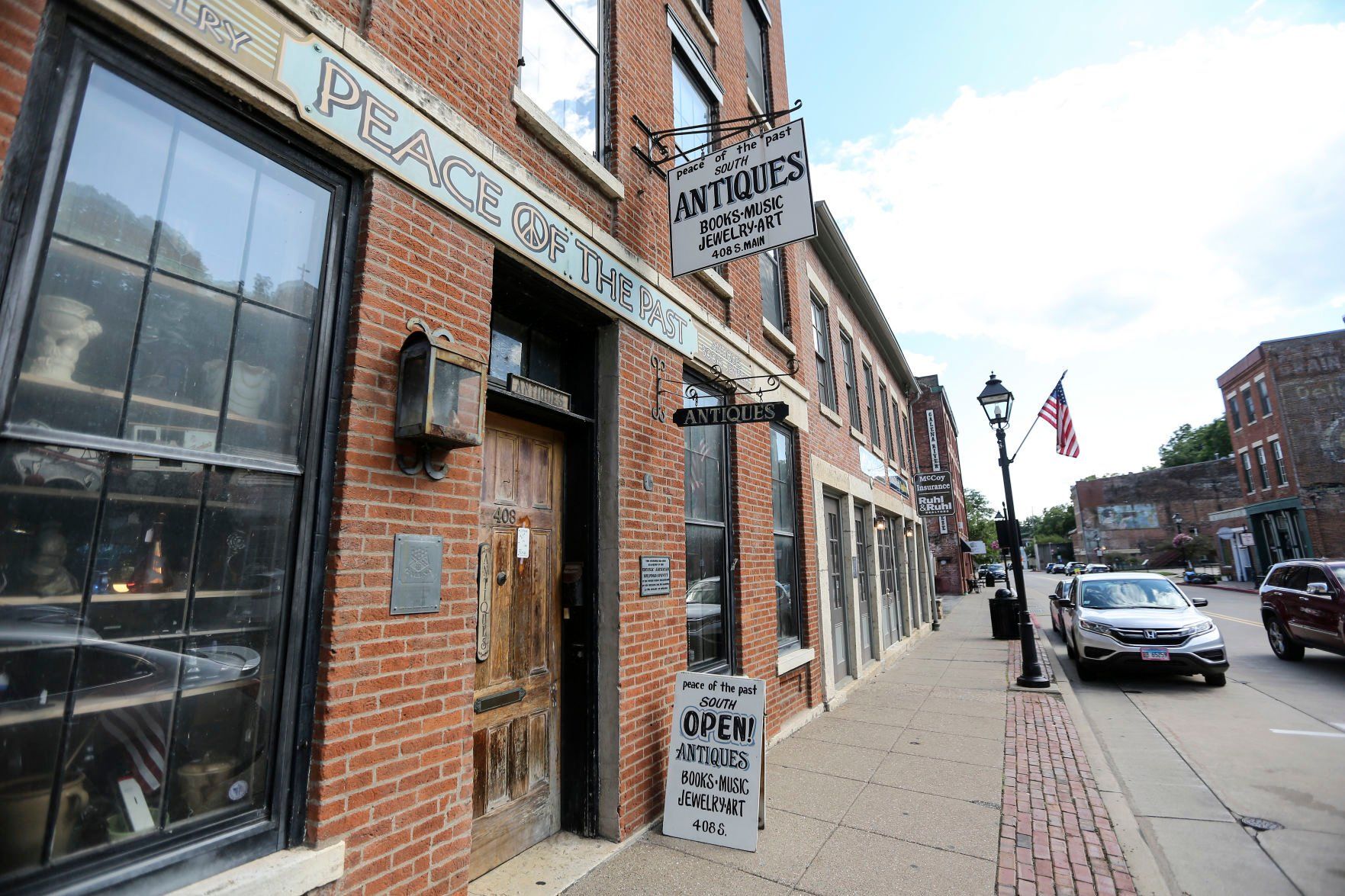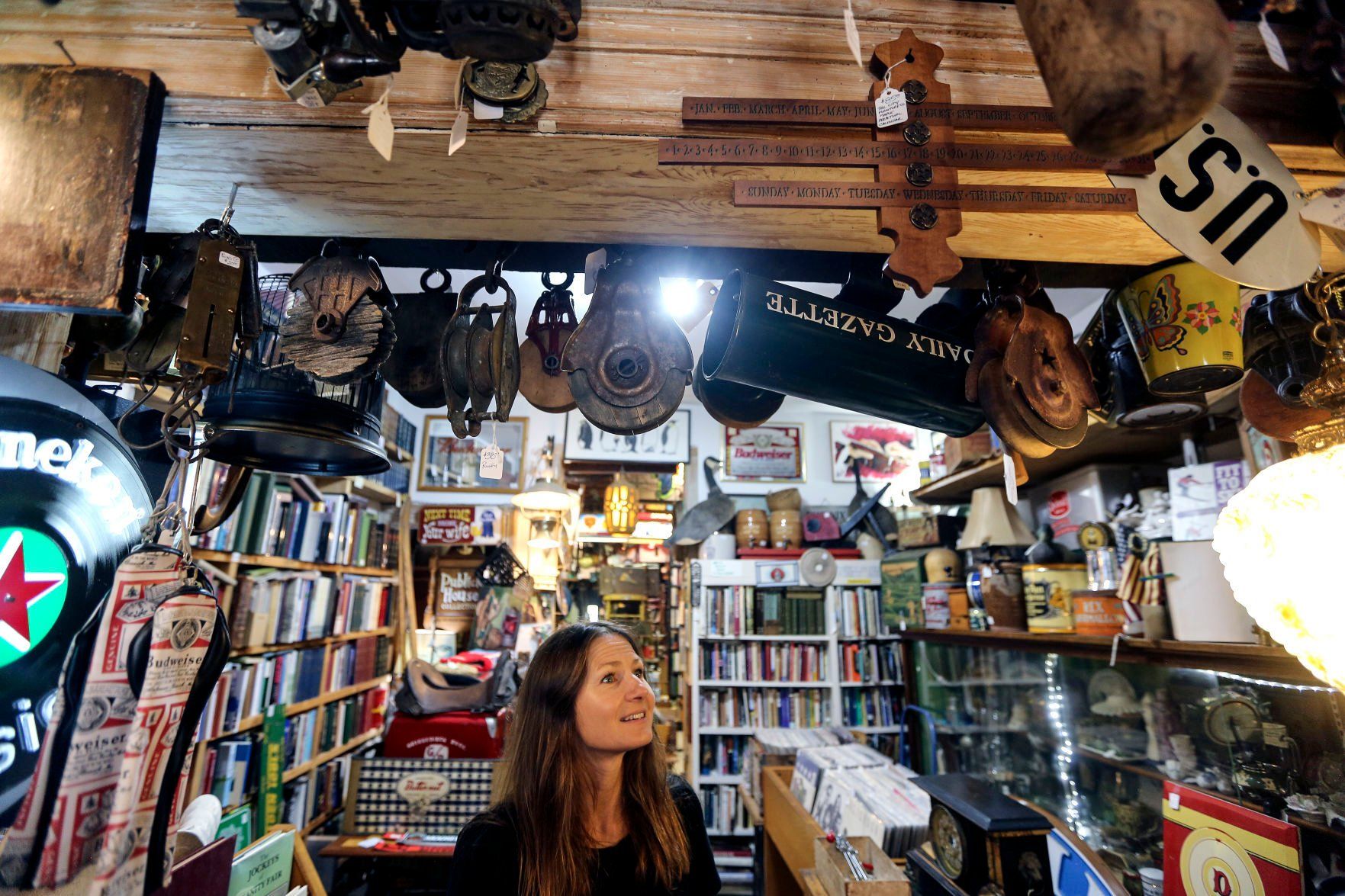GALENA, Ill. — One person’s trash is another’s treasure.
For many, the refrain is a well-worn proverb. For William Karberg, it’s a proven business strategy.
“It’s about finding things that people can’t find anywhere else,” he said while standing behind the counter at his antique store, Peace of the Past, in Galena. “I try to be eclectic.”
Karberg has managed his downtown antique shop for 31 years. In a downtown strip that can see high business turnover, Karberg has maintained his original store and opened a second location in 2013.
Karberg runs one of many successful antique stores in the tri-state area, and those businesses are part of an industry that has seen increased success nationwide.
According to the Association of Resale Professionals, there are more than 25,000 resale, consignment and nonprofit resale shops in the U.S. Officials at ThredUP, an online resale marketplace, predict that the total revenue of the resale industry will increase from $24 billion in 2018 to $64 billion by 2028.
Within the resale industry, antique shops have a role to play by offering items of a particular age. While the technical definition of an antique means the item is at least 100 year old, Karberg said most antique store owners define them as something seen by customers as vintage and nostalgic.
“The definition of what an antique is or isn’t is arbitrary,” he said. “The business is about finding old things that people are interested in, and that might be something that is more than 50 years old, or it might not be.”
Heidi Huisman, owner of Savvy Salvage in Dyersville, Iowa, said the sweet spot for popular antiques are items that are 40 to 70 years old. At the moment, customers have a high interest in items made after the 1950s and before the 1990s.
“After 1990, everything started getting manufactured overseas,” Huisman said. “There’s a sense that these older items were made out of quality materials and that they will last.”
Karberg said items also can gain popularity as a result of larger societal trends.
In 2020, the COVID-19 pandemic led many people to go out to bars less often and to spend more time at home. As a result, Karberg saw a rapid increase in sales of old beer and liquor signs as people turned to building their bars at home.
“A lot of people were making man caves, and they needed something to decorate them with,” he said.
While antique store owners try to follow trends of what is and isn’t popular among patrons, they often find themselves surprised by what customers are willing to pay for items that otherwise seem worthless.
Vance DeLire has operated Antiques and Salvage in Cuba City, Wis., for the past 10 years. His business prioritizes deconstructing old homes and buildings and salvaging doors, cupboards and furniture for resale at his antique store.
On one occasion, he discovered an old advertisement board for Red Stripe beer hidden under the floorboards of a home. He saw little value in the item initially but chose to display it in his store. Before he knew it, a collector of Red Stripe beer paraphernalia offered him $850 for the board.
“You never really know what is going to be worth a lot,” DeLire said. “People tend to surprise you.”
While the inscrutable value of antiques to particular individuals sometimes can result in lucrative sales, it also can mean some items sit on store shelves for years, highlighting one of the challenges antique stores face.
The stores have no distributors or suppliers. Huisman acquires the items she sells by exploring garage sales, flea markets and thrift stores. After 12 years in business, she has an eye for what sells, but there is the risk that a customer won’t find value in an item.
“You have to really pay attention to what people actually want,” Huisman said. “Right now, clear glass doesn’t sell. It might look nice, but people don’t want it.”
Karberg said he generally has found success in selling certain types of items. Old gadgets, such as typewriters and radios, tend to garner a lot of interest. But even after 30 years in business, he finds some items for his store that don’t end up selling.
“If I were so smart, you wouldn’t see so many things sitting around in the store,” he said.
Despite the occasional pot gathering dust, local antique store owners say business is good and that customers of all ages are interested in items from bygone eras.
“There’s always a demand for older things,” Huisman said. “My younger customers don’t want what their mom had. They want what Grandma had.”


